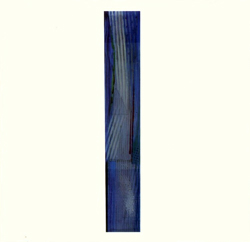
A smaller than usual Freezone Appleby Festival, 2007 presents duos and trios with the excellent lineup of Paolo Angeli, Evan Parker and Ned Rothenberg.
Out of Stock
Quantity in Basket: None
Log In to use our Wish List
Shipping Weight: 6.00 units
Sample The Album:
Paolo Angeli-Sardinian guitar, electronics
Evan Parker-soprano, tenor saxophones
Ned Rothenberg-alto saxophone, clarinet, bass clarinet
Click an artist name above to see in-stock items for that artist.
UPC: 5030243080427
Label: psi
Catalog ID: 08.04
Squidco Product Code: 10236
Format: CD
Condition: New
Released: 2008
Country: Great Britain
Packaging: Jewel Tray
Recorded July 29, 2007.
"The Freezone in 2007 was played by just three. The smaller than usual line up allowed for a more intense investigation of the relationships between the players. For the first time an entire set was played by all three musicians and this set was so successful that it is presented unedited, along with two duos. There will be no Appleby Festival in 2008, and therefore for the moment the sequence comes to an end with what many people considered the most successful Freezone ever."-psi
Artist Biographies
• Show Bio for Paolo Angeli "Born in 1970, he started to play guitar when he was 9. He grew up in Palau, an extremely stimulating musical environment. The guitar and the voice of his father, his first mentor, the autobus with the drums, the chicken, the melons, the 'diroccati' rock groups in an old carpentry, the experiences with concerts in the squares and carnival evenings, they all directed him towards a sailing without stylistic barriers in the world of music. After he obtained his Nautical Diploma, in 1989 he moved to Bologna. It was during the 1990 university occupation that the Laboratorio di Musica & Immagine was born: a colourful ensemble of 14 musicians who, by unblocking the barriers among musical genres and by practising collective composition and improvisation, started becoming famous in the main European festivals of innovation music. Suspended between the camera post-rock of Mistress, the duo with Stefano Zorzanello, the improvisation with Jon Rose, the realization of the opera Pacifica with Fred Frith, the choir at Tasgia, the Serbian dances Diamant Brin and Trabant, he started playing the tube with the Banda Roncati, the extraordinary experience of social music. In the same period he was among the founding members of the popular music school Ivan Illich and the independent label Erosha. On 1993, he was fulgurated by the encounter with Giovanni Scanu, the old guitar player from Sardinia, who died at the age of 95 and from whom he learnt the forms and the modules of the 'canto a chitarra gallurese e logudorese'. From this 'fighting meeting' between extra-cultivated avant-garde and popular tradition came his Sardinian prepared-guitar: an orchestra-instrument with 18 cords, an hybrid between guitar, baritone, violoncello and drums, gifted with hammers, pedals, some propellers at variable speed. With this singular instrument, constructed by the craftsman Francesco Concas, Paolo elaborates, improvises and composes unclassifiable music, suspended between free jazz, folk noise and minimal pop. In 1995, he released his visionary album Dove dormono gli autobus, (played live on 1997 by the band Fraìli). In 1997, he won the competition Posada Jazz Project and recorded Linee di fuga, the first work with his modified guitar. In 2003, he published Bucato, the synthesis of four years of concerts all over Europe, a live 'Solo' CD produced by the English label ReR. Then, he started touring in Canada and the United States, a period of tournées immortalized by the live publications Mede e Drawing Circle. In the same year, on request by Pat Metheny, he started the project of a new model of his Sardinian prepared guitar; in the Liuteria Stanzani it was two guitars that were born, one of which was adopted by the American musician. In 2005, for ReR, he realized Nita, l'angelo sul trapezio, an imaginary sound track as a result of the participation of most of the musicians belonging to the Bologna creative scene. Nita represents a synthesis of the creativity of the collectives and the freshness of the traditional Sardinian music. In 2005 Paolo moved to Barcelona. 2007 opens with the eclectic Tessuti (ReR) a solo project devoted to the compositions of Fred Frith and Björk, with the live vinyl Andature Portanti (Wallace Records). It follows a pearl in his production: the dualdisc Tibi (2010 DVD/CD), based on a photographic reportage of the prepared Sardinian guitar, realized by Nanni Angeli and sonorized live in 'Solo' with a music suite which includes new compositions and tracks taken from the preceding albums. The work can be defined as the most important synthesis created by Paolo on the prepared Sardinian guitar, with a avant-garde mixing in 5.1 and with a relation to the image taking us back to the works of LM&I. In 2013 Paolo produced his definitive meeting point between Sardinian traditional music and mediterranean influences Sale Quanto Basta (ReR). Among his artistic collaborations, it is to be remembered the multimedia projects with Nanni Angeli (Tibi, Il passo dei Misteri), the duo with Hamid Drake (Uotha Nubop 2005, Deghe ReR 2014), the avant-pop duo with Takumi Fukushima (Itsunomanika ReR 2011), the POG Trio - Piccola Orchestra Gagarin, with Sasha Agranov, cello, and Uriol Roca, drums - (Platos Combinados, WAJ/ALU 2011), the trio with Evan Parker and Ned Rottemberg (Free zone Appleby 2007). Since 2009 the collaboration with Antonello Salis (Ma.Ri Auand 2003), and Drake took on the formula Trio, and in 2010 it was born the quartet that includes Gavino Murgia (Giornale di Bordo, Egea - Sard disc 2011). Among the remaining traces, Paolo continues to play with his travel companions Alberto Masala and Riccardo Pittau, the projects with Fred Frith (duo, trio, quartet, Tessitura). Paolo Angeli has a degree in Ethnomusicology at DAMS, Bologna. From 1997, he has been collaborating with ISRE at the constitution of Archivio Mario Cervo (the most important collection of sardinian records and traditional music). As a researcher, he has published Canto in Re, a volume of historical analysis of the 'Canto a Chitarra', accompanied by 4 CDs with recordings dated from 1930 to 1967. With Nanni Angeli, he is the artistic director of Isole che parlano, a international arts festival suspended between innovation and tradition taking place in Palau since 1996. Paolo plays live more than 50 concerts for year in Europe, Usa, Canada, Russian, Brasil. He plays and records for Radio Rai Tre, Radio Rai due, BBC 3, NPR (Usa), Bayerisher Rundfunk, continuously performing in festival, galleries, theatres, and avant-jazz clubs. He improvised and collaborated with Pat Metheny, Fred Frith, Jon Rose, Enkhjargal Dandarvaanchig, Antonello Salis, Hamid Drake, Evan Parker, Ned Rothemberg, Takumi Fukushima, Zeena Parkins, Otomo Yoshide, Nuno Rebelo, Lukas Simonis, Andy Ex, Verian Weston, Robert Dick, Lukas Ligeti, Phillip Greenlief, Shoko Hikage, Alex MacSween, Gino Robair, Tim Perkins, Frank Schulte, Carlo Actis Dato, Gianni Gebbia, Alberto Masala, Audrey Chen, Mike Evans, Neil Feather, Katt Ernandez, Dan Breen, Janet Fader, Camel Zekri. He has also played with the conduction of Elliot Sharp, Butch Morris, Giancarlo Schiaffini, Fred Frith." ^ Hide Bio for Paolo Angeli • Show Bio for Evan Parker "Evan Parker was born in Bristol in 1944 and began to play the saxophone at the age of 14. Initially he played alto and was an admirer of Paul Desmond; by 1960 he had switched to tenor and soprano, following the example of John Coltrane, a major influence who, he would later say, determined "my choice of everything". In 1962 he went to Birmingham University to study botany but a trip to New York, where he heard the Cecil Taylor trio (with Jimmy Lyons and Sunny Murray), prompted a change of mind. What he heard was "music of a strength and intensity to mark me for life ... l came back with my academic ambitions in tatters and a desperate dream of a life playing that kind of music - 'free jazz' they called it then." Parker stayed in Birmingham for a time, often playing with pianist Howard Riley. In 1966 he moved to London, became a frequent visitor to the Little Theatre Club, centre of the city's emerging free jazz scene, and was soon invited by drummer John Stevens to join the innovative Spontaneous Music Ensemble which was experimenting with new kinds of group improvisation. Parker's first issued recording was SME's 1968 Karyobin, with a line-up of Parker, Stevens, Derek Bailey, Dave Holland and Kenny Wheeler. Parker remained in SME through various fluctuating line-ups - at one point it comprised a duo of Stevens and himself - but the late 1960s also saw him involved in a number of other fruitful associations. He began a long-standing partnership with guitarist Bailey, with whom he formed the Music Improvisation Company and, in 1970, co-founded Incus Records. (Tony Oxley, in whose sextet Parker was then playing, was a third co-founder; Parker left Incus in the mid-1980s.) Another important connection was with the bassist Peter Kowald who introduced Parker to the German free jazz scene. This led to him playing on Peter Brötzmann's 1968 Machine Gun, Manfred Schoof's 1969 European Echoes and, in 1970, joining pianist Alex von Schlippenbach and percussionist Paul Lovens in the former's trio, of which he is still a member: their recordings include Pakistani Pomade, Three Nails Left, Detto Fra Di Noi, Elf Bagatellen and Physics. Parker pursued other European links, too, playing in the Pierre Favre Quartet (with Kowald and Swiss pianist Irene Schweizer) and in the Dutch Instant Composers Pool of Misha Mengelberg and Han Bennink. The different approaches to free jazz he encountered proved both a challenging and a rewarding experience. He later recalled that the German musicians favoured a "robust, energy-based thing, not to do with delicacy or detailed listening but to do with a kind of spirit-raising, a shamanistic intensity. And l had to find a way of surviving in the heat of that atmosphere ... But after a while those contexts became more interchangeable and more people were involved in the interactions, so all kinds of hybrid musics came out, all kinds of combinations of styles." A vital catalyst for these interactions were the large ensembles in which Parker participated in the 1970s: Schlippenbach's Globe Unity Orchestra, Chris McGregor's Brotherhood of Breath, Barry Guy's London Jazz Composers Orchestra (LJCO) and occasional big bands led by Kenny Wheeler. In the late 70s Parker also worked for a time in Wheeler's small group, recording Around Six and, in 1980, he formed his own trio with Guy and LJCO percussionist Paul Lytton (with whom he had already been working in a duo for nearly a decade). This group, together with the Schlippenbach trio, remains one of Parker's top musical priorities: their recordings include Tracks, Atlanta, Imaginary Values, Breaths and Heartbeats, The Redwood Sessions and At the Vortex. In 1980, Parker directed an Improvisers Symposium in Pisa and, in 1981, he organised a special project at London's Actual Festival. By the end of the 1980s he had played in most European countries and had made various tours to the USA, Canada, Australia, New Zealand and Japan. ln 1990, following the death of Chris McGregor, he was instrumental in organising various tributes to the pianist and his fellow Blue Notes; these included two discs by the Dedication Orchestra, Spirits Rejoice and lxesa. Though he has worked extensively in both large and small ensembles, Parker is perhaps best known for his solo soprano saxophone music, a singular body of work that in recent years has centred around his continuing exploration of techniques such as circular breathing, split tonguing, overblowing, multiphonics and cross-pattern fingering. These are technical devices, yet Parker's use of them is, he says, less analytical than intuitive; he has likened performing his solo work to entering a kind of trance-state. The resulting music is certainly hypnotic, an uninterrupted flow of snaky, densely-textured sound that Parker has described as "the illusion of polyphony". Many listeners have indeed found it hard to credit that one man can create such intricate, complex music in real time. Parker's first solo recordings, made in 1974, were reissued on the Saxophone Solos CD in 1995; more recent examples are Conic Sections and Process and Reality, on the latter of which he does, for the first time, experiment with multi-tracking. Heard alone on stage, few would disagree with writer Steve Lake that "There is, still, nothing else in music - jazz or otherwise - that remotely resembles an Evan Parker solo concert." While free improvisation has been Parker's main area of activity over the last three decades, he has also found time for other musical pursuits: he has played in 'popular' contexts with Annette Peacock, Scott Walker and the Charlie Watts big band; he has performed notated pieces by Gavin Bryars, Michael Nyman and Frederic Rzewski; he has written knowledgeably about various ethnic musics in Resonance magazine. A relatively new field of interest for Parker is improvising with live electronics, a dialogue he first documented on the 1990 Hall of Mirrors CD with Walter Prati. Later experiments with electronics in the context of larger ensembles have included the Synergetics - Phonomanie III project at Ullrichsberg in 1993 and concerts by the new EP2 (Evan Parker Electronic Project) in Berlin, Nancy and at the 1995 Stockholm Electronic Music Festival where Parker's regular trio improvised with real-time electronics processed by Prati, Marco Vecchi and Phillip Wachsmann. "Each of the acoustic instrumentalists has an electronic 'shadow' who tracks him and feeds a modified version of his output back to the real-time flow of the music." The late 80s and 90s brought Parker the chance to play with some of his early heroes. He worked with Cecil Taylor in small and large groups, played with Coltrane percussionist Rashied Ali, recorded with Paul Bley: he also played a solo set as support to Ornette Coleman when Skies of America received its UK premiere in 1988. The same period found Parker renewing his acquaintance with American colleagues such as Anthony Braxton, Steve Lacy and George Lewis, with all of whom he had played in the 1970s (often in the context of London's Company festivals). His 1993 duo concert with Braxton moved John Fordham in The Guardian to raptures over "saxophone improvisation of an intensity, virtuosity, drama and balance to tax the memory for comparison". Parker's 50th birthday in 1994 brought celebratory concerts in several cities, including London, New York and Chicago. The London performance, featuring the Parker and Schlippenbach trios, was issued on a highly-acclaimed two-CD set, while participants at the American concerts included various old friends as well as more recent collaborators in Borah Bergman and Joe Lovano. The NYC radio station WKCR marked the occasion by playing five days of Parker recordings. 1994 also saw the publication of the Evan Parker Discography, compiled by ltalian writer Francesco Martinelli, plus chapters on Parker in books on contemporary musics by John Corbett and Graham Lock. Parker's future plans involve exploring further possibilities in electronics and the development of his solo music. They also depend to a large degree on continuity of the trios, of the large ensembles, of his more occasional yet still long-standing associations with that pool of musicians to whose work he remains attracted. This attraction, he explained to Coda's Laurence Svirchev, is attributable to "the personal quality of an individual voice". The players to whom he is drawn "have a language which is coherent, that is, you know who the participants are. At the same time, their language is flexible enough that they can make sense of playing with each other ... l like people who can do that, who have an intensity of purpose." " ^ Hide Bio for Evan Parker • Show Bio for Ned Rothenberg "Composer/Performer Ned Rothenberg has been internationally acclaimed for both his solo and ensemble music, presented for the past 33 years on 5 continents. He performs primarily on alto saxophone, clarinet, bass clarinet, and the shakuhachi - an endblown Japanese bamboo flute. His solo work utilizes an expanded palette of sonic language, creating a kind of personal idiom all its own. In an ensemble setting, he leads the trio Sync, with Jerome Harris, guitars and Samir Chatterjee, tabla, works with the Mivos string quartet playing his Quintet for Clarinet and Strings and collaborates around the world with fellow improvisors. Recent recordings include this Quintet, The World of Odd Harmonics, Ryu Nashi (new music for shakuhachi), and Inner Diaspora, all on John Zorn's Tzadik label, as well as Live at Roulette with Evan Parker, and The Fell Clutch, on Rothenberg's Animul label." ^ Hide Bio for Ned Rothenberg
11/18/2024
Have a better biography or biography source? Please Contact Us so that we can update this biography.
11/18/2024
Have a better biography or biography source? Please Contact Us so that we can update this biography.
11/18/2024
Have a better biography or biography source? Please Contact Us so that we can update this biography.
Track Listing:
1. Shield (Blue) Duo 1 13:07
2. Shield (Blue) Duo 2 11:00
3. Shield (Blue) Trio 1 2:54
4. Shield (Blue) Trio 2 4:56
5. Shield (Blue) Trio 3 7:38
6. Shield (Blue) Trio 4 7:11
7. Shield (Blue) Trio 5 3:39
8. Shield (Blue) Trio 6 7:33
EMANEM & psi
Improvised Music
European Improvisation and Experimental Forms
Parker, Evan
Rothenberg, Ned
London & UK Improv & Related Scenes
Free Improvisation
Recordings by or featuring Reed & Wind Players
Trio Recordings
Search for other titles on the label:
psi.



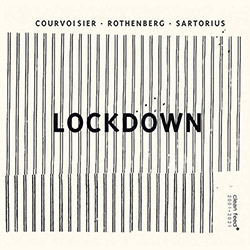


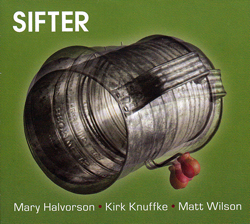

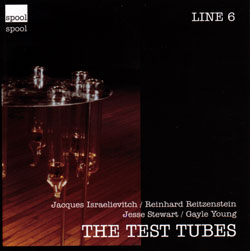
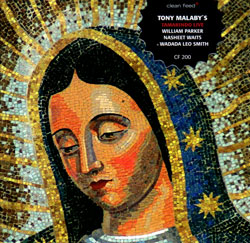
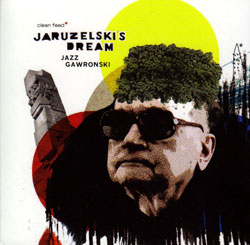
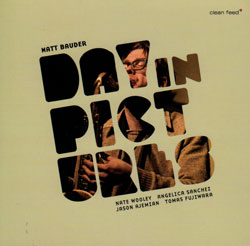
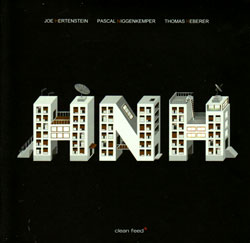
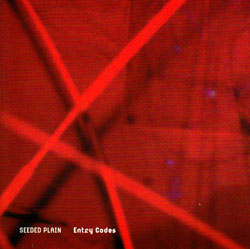
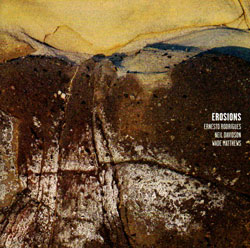
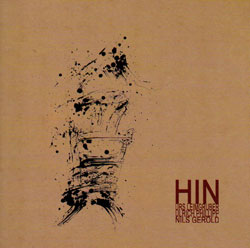
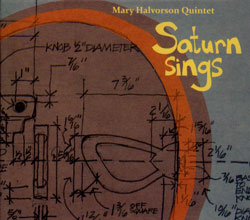
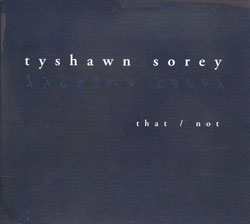
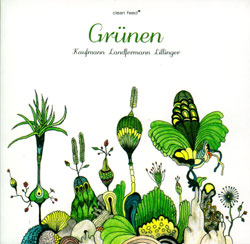
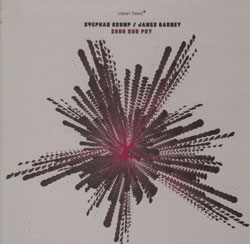
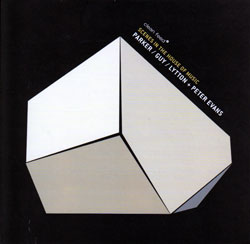
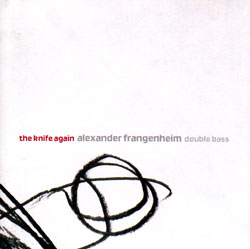
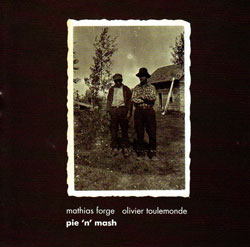
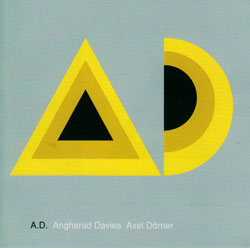
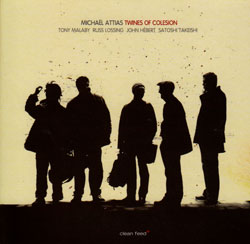
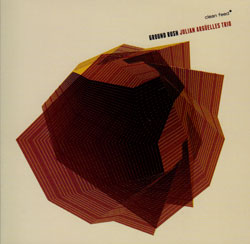
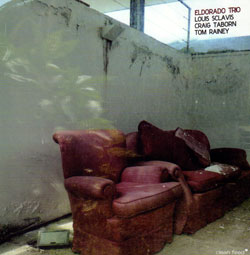
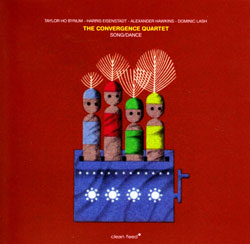














![Barker / Parker / Irabagon: Bakunawa [VINYL]](https://www.teuthida.com/productImages/misc4/35533.jpg)
![Blaser, Samuel / Marc Ducret / Peter Bruun: Dark Was The Night, Cold Was The Ground [VINYL 10-inch]](https://www.teuthida.com/productImages/misc4/35492.jpg)










![Warren, Kenny (Warren / Hoffman / Ellman): Sweet World [VINYL]](https://www.teuthida.com/productImages/misc4/35451.jpg)


![Blake, Ran / Dave Knife Fabris: Live Amsterdam 2006, First Visit [CD + POSTCARDS]](https://www.teuthida.com/productImages/misc4/35275.jpg)
![Sanna, Claudio: Compositori Sardi Contemporanei II [2 CDs]](https://www.teuthida.com/productImages/misc4/35317.jpg)












![Nevai, Nandor: <<The PRICE of FRONTIER>> Book 1: FULK [BOOK + 4 CDs]](https://www.teuthida.com/productImages/misc4/35464.jpg)
![Nevai, Nandor: <<The PRICE of FRONTIER>> Book 2: MARTIAL [BOOK + 4 CDs]](https://www.teuthida.com/productImages/misc4/35465.jpg)
![Nevai, Nandor: <<The PRICE of FRONTIER>> Book 3: JASSOM [BOOK + 4 CDs]](https://www.teuthida.com/productImages/misc4/35466.jpg)
![Nevai, Nandor: <<The PRICE of FRONTIER>> Book 4: HARD-WON [BOOK + 4 CDs]](https://www.teuthida.com/productImages/misc4/35467.jpg)






![DNS: Taking Big Bites Of The Khandas Three Cafes Deep [2 CDs]](https://www.teuthida.com/productImages/misc4/35334.jpg)




![Cleaver, Gerald: The Process [VINYL]](https://www.teuthida.com/productImages/misc4/34966.jpg)




![Alva Noto: HYbr:ID II [VINYL 2 LPs]](https://www.teuthida.com/productImages/misc4/35201.jpg)

![Baron, Derek / Luke Martin: Distinct and Concealed [CASSETTE + DOWNLOAD]](https://www.teuthida.com/productImages/misc4/35079.jpg)

![Lyle, Erica Dawn : Colonial Motels [CASSETTE + DOWNLOAD]](https://www.teuthida.com/productImages/misc4/35080.jpg)







![Alva Noto: HYbr:ID III [VINYL 2 LPs]](https://www.teuthida.com/productImages/misc4/35011.jpg)
![Kubisch, Christina / Trondheim Voices: Stromsanger 2022 For Six Voices And Electromagnetic Waves [VINYL]](https://www.teuthida.com/productImages/misc4/34628.jpg)








![Zurria, Manuel: Fame di Vento [3 CDs]](https://www.teuthida.com/productImages/misc4/35167.jpg)

![Granberg, Magnus / Nattens Inbrott / Skogen: Holde Traume, Kehret Wieder! [2 CDs]](https://www.teuthida.com/productImages/misc4/35038.jpg)
![Frey, Jurg: Outermost Melodie [2 CDs]](https://www.teuthida.com/productImages/misc4/35039.jpg)

![Pavone, Jessica: Reverse Bloom [VINYL]](https://www.teuthida.com/productImages/misc4/34895.jpg)




![Modney (Modney / Wooley / Gentile / Roberts / Pluta / Symthe / ...): Ascending Primes [2 CDs]](https://www.teuthida.com/productImages/misc4/34852.jpg)








![Elephant9 with Terje Rypdal: Catching Fire [VINYL 2 LPs]](https://www.teuthida.com/productImages/misc4/35355.jpg)
![Deerlady (Obomsawin, Mali / Magdalena Abrego): Greatest Hits [VINYL]](https://www.teuthida.com/productImages/misc4/34876.jpg)




![Haino, Keiji: Black Blues [2 CDs]](https://www.teuthida.com/productImages/misc4/35109.jpg)



![Surplus 1980: Illusion of Consistency [CD]](https://www.teuthida.com/productImages/misc4/35069.jpg)
![Staiano, Moe: Away Towards the Light [VINYL + DOWNLOAD]](https://www.teuthida.com/productImages/misc4/35037.jpg)




![Caveira (Gomes / Sousa / Abras / Ferrandini): Ficar Vivo [VINYL]](https://www.teuthida.com/productImages/misc4/34643.jpg)
![Gregg, J. J. / David Van Auken: Lunar Prairie [CD w/ DOWNLOAD]](https://www.teuthida.com/productImages/misc4/34611.jpg)

![Coultrain: Mundus [VINYL]](https://www.teuthida.com/productImages/misc4/32439.jpg)
![Mattin: Songbook #6 [VINYL]](https://www.teuthida.com/productImages/misc4/27317.jpg)
![Punkappella: Wake Up [7-inch VINYL]](https://www.teuthida.com/productImages/misc4/17519.jpg)
![Residents, The: WARNING: UNiNC.: Live And Experimental Recordings 1971-1972 [VINYL 2 LPs]](https://www.teuthida.com/productImages/misc4/31521.jpg)
![Coultrain: Phantasmagoria [VINYL]](https://www.teuthida.com/productImages/misc4/30142.jpg)
![Lennon, Sean Ono: Asterisms [VINYL]](https://www.teuthida.com/productImages/misc4/34517.jpg)

![Rotem Geffen: The Night Is The Night [VINYL]](https://www.teuthida.com/productImages/misc4/34631.jpg)
![Coley, Byron: Dating Tips for Touring Bands [VINYL]](https://www.teuthida.com/productImages/misc4/17906.jpg)

![Lost Kisses: My Life is Sad & Funny [DVD]](https://www.teuthida.com/productImages/misc4/lostKissesDVD.jpg)